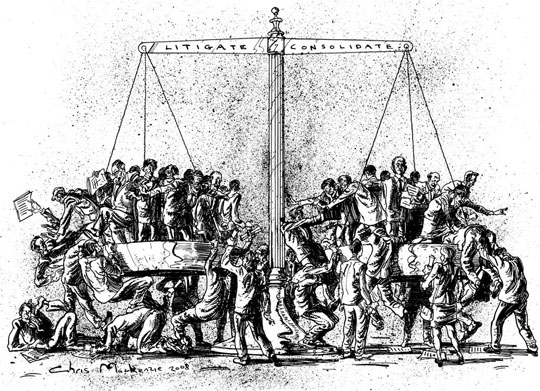With its first crop of graduates just entering the legal profession, Japan's new law school system is in trouble. The schools, most of which opened their doors in 2004, are already struggling with the mismatch between the number of law students, which is unregulated, and the number of people who are allowed to pass the bar exam, which is set by the government at an artificially low number. As a result, the most recent pass rate was about 40 percent, a figure that will continue to drop as more graduates and repeat takers compete for a fixed number of slots — an unattractive situation for both existing and prospective students alike. More recently, the system has come under fire from a new quarter: Justice Minister (and former Minister of Education) Kunio Hatoyama and a number of regional bar associations.
In an article in Shukan Asahi magazine last fall, Hatoyama attacked the law schools' very raison d'etre: increasing the number of lawyers who enter the legal profession (from a paltry 1,500 per year now to 3,000 by 2010). On Jan. 25, the Ministry of Justice indicated it was going to revisit this number, including the possibility of lowering the number of people who are allowed to pass the bar exam. If this happens it will be a betrayal by regulatory fiat of some of the fundamental assumptions and expectations of law students and educators across the country.
Hatoyama's principal concern seems to be that more lawyers will mean more lawsuits and that Japan will become a "litigation society" like the United States. That the man who among other things is effectively the head of Japan's prosecutorial agency is calling to limit the number of people who can act as defense lawyers does not seem to have raised any eyebrows. Indeed, several regional bar associations have announced that they agree with him. In doing so, the lawyers raise valid issues about the very premise behind the law school system — that Japan even needs more lawyers — and the almost mindless process by which the current target of 3,000 new lawyers per year was arrived at (a comparison to the number of lawyers in other countries, with France being given particular weight — though without any real explanation as to why — as a comparative).



